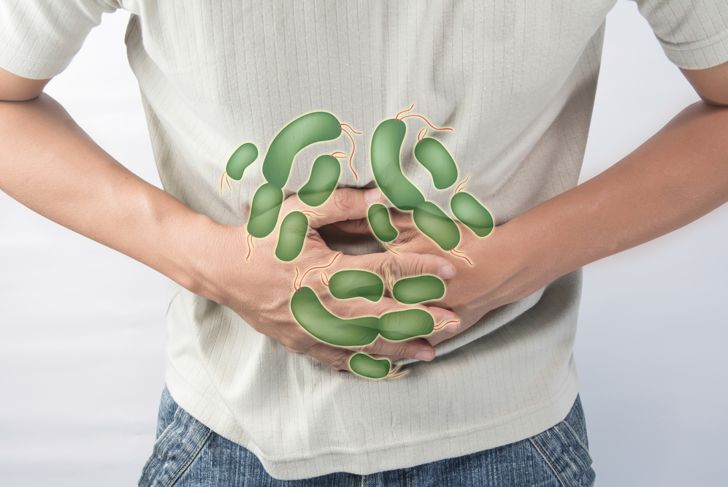Diarrhea isn’t an uncommon digestive complaint. In fact, everyone in the world will experience diarrhea at some point in their life. Just like sneezing or coughing from a cold, the increase in the frequency of bowel movements can occur several times a year. The symptoms of diarrhea are well-known: loose stools, cramping, and visits to the bathroom multiple times per day. However, it can be difficult to determine when it is more severe, prompting you to seek a doctor. The severity is measured by the size and number of stools a patient passes within a particular period. The sickness is measured as mild to moderate to severe, which goes from a few diarrhea stools in one day to several to more than ten, respectively. It is important to know the differences when you have symptoms of diarrhea.
Standard Symptoms of Diarrhea
Chances are good you have experienced this sickness at time or two already in your life. It is characterized by the urgent and frequent amount of times you need to use the restroom. The most common symptom of diarrhea is loose, watery stools that pass two or three times, or more, in 24 hours. Because of the nature of the illness, a patient will also experience abdominal cramps and pain.Flu-like symptoms are associated with diarrhea as well. These include fever and nausea. Bloating can occur as well as slightly bloody stools. It is typical to have the sensation to run to the bathroom when experiencing this digestive condition.These typical systems of diarrhea should last a day or two; they typically subside without medication within 48 hours. If the nausea is too intense, a bismuth medication, available over the counter, might provide relief. It is crucial to keep your body hydrated with water and other liquids during this timeframe. Dehydration is a very real side effect of severe diarrhea. Also, avoid spicy foods and other things that will only make an already uncomfortable situation worse.
Acute Symptoms of Diarrhea
You should contact a doctor if you have experienced watery, loose stools for more than two days. If several rectal or abdominal pains are associated with the condition, call your physician immediately. A fever over 102 F (39 C) is a severe symptom of diarrhea as well as bloody or black stools. If you become dehydrated as a result of diarrhea, you will need to seek medical attention right away.When children, especially toddlers and babies, experience diarrhea, they can reach a level of dehydration rather quickly. You need to call a doctor if your child has symptoms for more than a day. Symptoms of dehydration for children are akin to those of adults; however, nausea and the inability to keep food in the stomach are also a factor in childhood dehydration. Symptoms related to diarrhea can sometimes be early indications of a more serious illness like irritable bowel disease, pancreatitis, or colon cancer.
Symptoms of Dehydration
If you lose too many fluids too quickly, you will become dehydrated. Because diarrhea is associated with watery, loose stools, the liquids are draining from your body too fast. Therefore, it is critical to rehydrate yourself by drinking plenty of fluids, especially extra water. Replacing the sodium and electrolytes in your body are also important. Broth, fruit juice, and other soups can help you rehydrate. Even certain kinds of sports drinks with electrolytes can help alleviate nausea associated with dehydration.Pay attention to signs of dehydration in connection to diarrhea including increased thirst, weakness, dizziness, sluggishness, confusion, dry mouth, inability to sweat, and decreased urine output. The color of your urine can also reveal symptoms of dehydration if it is deeply yellow or amber. Also, if you pinch all small piece of skin on your arm, and it stays white for several seconds before returning to its natural color, you may be dehydrated.
Symptoms of Persistent Diarrhea
Chronic diarrhea is categorized by the fact that a patient has the same symptoms for more than two weeks. The cause of the urgent bathroom breaks needs to be identified. You will have to explain to symptoms to a doctor as well as your medical history. Some common questions your physician will want to know include:
- How long have you had it?
- Does it come and go or is it continuous?
- Do certain foods or situations make your symptoms better or worse?
- Is your stool bloody, oily, fatty, or watery?
- What other symptoms do you have, and for how long?
- Does anyone in your family have a history of chronic diarrhea?
- Have you recently traveled somewhere?
- Are you currently on any medications?
The more accurate you can be with these questions, the more you will get out of your visit. A plethora of factors can result in diarrhea including stress, particular medicines, and dietary changes. A doctor can also determine if a more serious condition is the reason for your persistent diarrhea like inflammatory bowel disease, malabsorption syndrome, or colorectal cancer.
Diarrhea is a Common Condition
Diarrhea can be embarrassing, but remember that all men and women have experienced the temporary urgency to relieve the bowels. The frequent trips to the toilet may keep you have from school or work for a day until the usual symptoms subside. Even if you have mild symptoms, you might want to enjoy the privacy and comfort of your home rather than a public place. Just monitor the symptoms, and try to feel as relaxed as possible knowing the fever, stomach cramps, and loose, watery stools will end soon enough. Be more cautious and contact a doctor especially if they last more than 24 hours for children and 48 hours for adults.
Food Poisoning Causes Diarhhea
If you’ve eaten something contaminated with bacteria, such as e.coli or salmonella, you might experience diarrhea as a symptom of food poisoning. Consuming undercooked meats can easily lead to food poisoning, so make sure that you cook your meat to at least 140 degrees internal temperature – out of the “danger zone” for food contamination. Other foodborne illnesses can come as a result of vegetables that have had e.coli contact, or botulism from pork or dented cans. Wash your fruit and vegetables, thoroughly, and make sure your meat is refrigerated properly to avoid bacterial growth.
Hormone Imbalances
Women can experience diarrhea when their hormone levels fluctuate at different periods in their lives. Premenstrual Syndrome – PMS – and the hormone fluctuations that accompany it, can cause it. The water retention associated with a woman’s cycle can also affect her digestive system. Pregnancy can also affect a woman’s digestive system. As a fetus grows in a woman, her digestion can slow down or move fast, depending on the nutrients that her baby needs. Diahrrea can be a very common effect of pregnancy.

 Home
Home Health
Health Diet & Nutrition
Diet & Nutrition Living Well
Living Well More
More

















